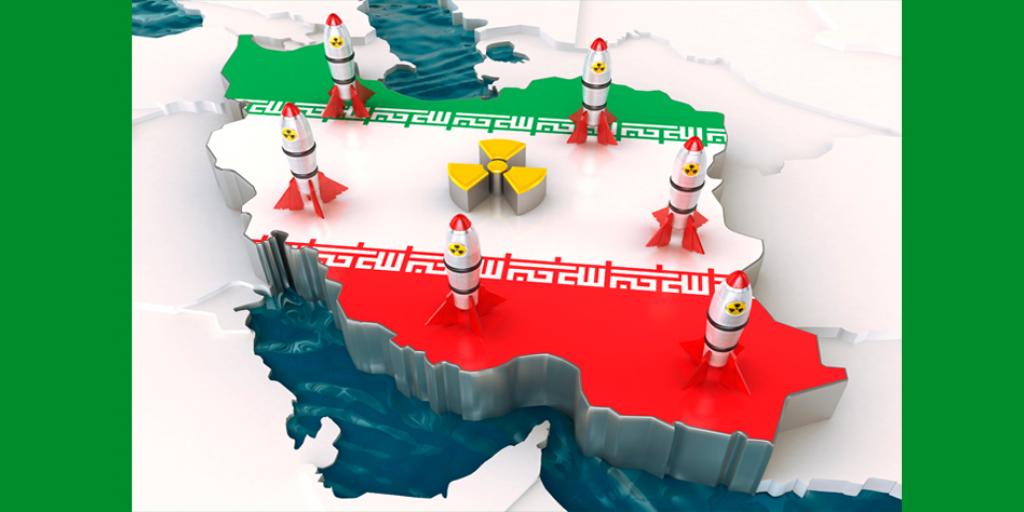
A Mideast Nuclear Arms Race?
Diplomats were smiling in Vienna last week when the United States and six other nations struck a nuclear weapons control deal with the Iranian government. Yet, while many in the West consider the deal a historic breakthrough, other nations such as Israel and Saudi Arabia now fear that Iran may use this deal as cover to create a nuclear weapon.
What some in the West fail to notice is that Iran is a Shia nation, not Arab. This puts it at odds with Islam’s Sunni majority. The new treaty does nothing to quell the 1,400-year-old religious conflict between Sunni and Shia—and it could even pave the way to a nuclear arms race in the Middle East, a development that would very well affect billions of human beings around the globe.
What is the root of this Sunni-Shia conflict? Historian Robert Spencer explains the great fire that was kindled between these two sects nearly 1,400 years ago:
"...a faction of the Muslims maintained that Muhammad had actually appointed Ali as his successor… Finally he was chosen as the fourth caliph in 656, but was assassinated in 661. The Shi’at Ali, or Party of Ali, known popularly as the Shi’a, did not give up. Their split from the larger group of Muslims widened and became more acrimonious, and continues to this day…The Sunni-Shi’ite fault line within Islam has given rise to considerable violence over the centuries, and in the twenty-first century threatens to erupt again into open war in Iraq, Pakistan, and elsewhere” (The Truth About Muhammad, pp. 166–168).
Over the last few decades, Iran and Saudi Arabia have been key players in “proxy wars” across the Middle East. These powerful Muslim nations of Islam have put into place outposts of support in key geographic locations throughout Iraq, Syria, Gaza, Lebanon, Pakistan, and Yemen in order to wage war against each other.
Not long ago, Shiite forces (supported by Iran) ousted Yemen’s Saudi-backed government, and a proxy war continues between the two nations. Since March 2011, Shiite government forces in Syria (also backed by Iran) have battled rebel forces backed by Saudi Arabia. From 1980–88, Iraq and Iran fought a devastating war, killing over one million people. Today, within Iraq, Sunni and Shiite tensions continue to lead to conflict.
What this means is that an Iranian nuclear deal has consequences not just for Shia Iran, but for Sunni Arab leaders across the Middle East. Now that Iran will be released from economic sanctions, will the newly emboldened nation be more able to show blatant disregard for international inspectors (as it has repeatedly done in the past) and soon create a nuclear weapon? And, facing this threat, would anyone doubt wealthy Saudi Arabia’s resolve and ability to act in its own best interest and obtain its own nuclear arsenal? Consider:
“Faced with the possibility of its archenemy acquiring a weapon of mass destruction, Saudi Arabia is speedily developing its own nuclear program. Over the past month, it has inked major nuclear energy development deals with both France and Russia… At the moment, Riyadh wants that technology solely for peaceful purposes. But nobody should doubt that the Saudi scientific community possesses the know-how and technical infrastructure to turn those reactors into military use if necessary” (The Week Magazine, July 10, 2015, vol. 15, issue 727, p. 15).
From there, it is only a short step to nuclear weapons falling into the hands of Hezbollah, Hamas, ISIS, or Al-Qaeda. Would those weapons be used in a Sunni-Shia war? Against Israel? Or against an enemy outside the Middle East?
Christ warned that at the end of this age, “nation would rise up against nation, and kingdom against kingdom” [ethnic group against ethnic group], causing “wars and rumors of wars” (Matthew 24:6–7). As Sunni and Shia continue to shed each other’s blood, and Saudi Arabia continues its proxy war with Iran, watch for such tensions and conflicts to increase.
Do you want to understand more about how events in the Middle East will affect your future? Be sure to watch our telecast “The Middle East in Prophecy.” Also read our magazine article “Islam in History and Prophecy.”
Stay up to date with our Weekly Digest Email!
Tomorrow's World ComMentary Podcast
Subscribe to Tomorrow's World Commentary podcasts on iTunes and Google Play!



